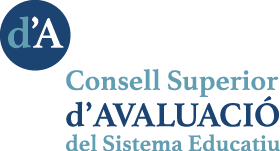Spain
MADRID
Madrid has been a pioneer region in Spain implementing a model of Test Base Accountability with the introduction of the CDI test in 2005 and the publication of the test results.
The publication of school scores in a free choice environment has contributed to advance a higher-stakes accountability system with a high level of performative pressure on schools.
Since 2013, the CDI test has been regulatively adapted to the external evalution defined in the LOMCE education reform act, adopted at the Spanish level
TEST-BASED ACCOUNTABILITY WORLD ATLAS
SAWA IN MADRID
| COUNTRY SPAIN | ||
|---|---|---|
| MADRID | SPANISH LEVEL | |
| Name of the standardized tests (in primary and low secondary) | CDI Test (Competencias y Destrezas Indispensables – Basic Knowledge and Skills) | LOMCE Test (Final Period Evaluation) |
| Name of the agency in charge of administering the test | Regional Directorate of Academic Planning (CDI Test) | Regional Directorate of Scholarships and Study Aids (LOMCE Test) |
| Grade(s) in which the test is applied | 3th and 6th grade of primary education (ISCED 1) and 3th grade of lower secondary education (ISCED 2). (CDI Test) | 3th and 6th grade of primary education (ISCED 1) and 4th grade of lower secondary education (ISCED 2). |
| Areas of knowledge covered by the test | Language competence in English and Spanish and mathematical competence (CDI Test) | Spanish language and literature; English language; Mathematics; History and Geography (LOMCE Test) |
| Year of adoption | 2005 in primary education and 2008 in lower secondary education (CDI Test) | 2017 in primary education and lower secondary education (LOMCE Test) |
description
The CDI test was introduced in Madrid in 2005, during the first period of president Esperanza Aguirre’s mandate, who implemented profound reforms in Madrileanian schools. The test was adopted as a reaction to the bad results reported by the Regional Inspection Body in the course 2003-2004, and was conceived as a necessary instrument to monitor education quality. Specifically, the test was expected to orient teachers about the students' adquistion of basic knowledge and skills, to inform parents about the learning outcomes of their children, and to provide schools and the public administration with data to enact potenitial improvement plans. The test was expanded to lower secondary education in 2008 with the same objectives and aproach.
The test results were published in a ranking format in the first editions. However, due to important criticisms coming from the education community the test has not been published in a ranking format anymore, but in a school browser. Despite the CDI results have not formal or direct concequences for students or schools, the publication of the school test results in a free choice environment contributes to the test putting more performative pressure on schools.
Since 2013 the CDI test has been regulatively adapted to the external evalution defined in the LOMCE education reform act at the national level.
SPECIFIC ACCOUNTABILITY POLICIES
AND TOOLS ATTACHED TO THE NATIONAL TEST
legislation

Plan General de Mejora de las Destrezas Indispensables (Order 5420-01/2005)

Basic Standards

School Autonomy Decree (Decree 12/2011)

School Autonomy Decree (Order 3814/2014)

Free School Choice Decree (2013) (Decree 29/2013)

Education Quality Improvement Law (Ley Organica para la Mejora de la Calidad Educativa, LOMCE)
references

Delibes. A., (2006)
Evaluación de resultados en la educación Obligatoria en Evaluación e innovación en el sistema educativo. III encuentros sobre educación en el Escorial.
Madrid: Consejería de Educación, Juventud y Deporte.

Verger, A., M. Prieto, M. Pagès and P. Villamor. (2018-forthcoming)
Common standards, different stakes: A comparative and multi-scalar analysis of accountability reforms in the Spanish education context.
European Education Research Journal.

Villamor P and Prieto M (2016)
Reformas hacia la privatización en la Comunidad de Madrid.
Revista de la Asociación de Sociología de la Educación 9(2): 265-276.
Catalonia
In 2009, an external and census base test for Catalan primary schools was adopted. Initially, this test had a diagnostic purpose and a low-stakes orientation.
In parallel to the introduction of the test, an Education Reform Act that gave more managerial autonomy to schools and empowered school principals was adopted in Catalonia.
More recently, the Catalan government has started using the standardized test to assess teachers' productivity and to identify and intervene underperforming schools.
TEST-BASED ACCOUNTABILITY WORLD ATLAS
SAWA IN CATALONIA
| COUNTRY SPAIN | ||
|---|---|---|
| CATALONIA | SPANISH LEVEL | |
| Name of the standardized tests (in primary and low secondary) | Basic Competences Test - Final Period Evaluation (FPE) | LOMCE Test (Final Period Evaluation) |
| Name of the agency in charge of administering the test | Superior Council of Evaluation | Superior Council of Evaluation |
| Grade(s) in which the test is applied | 6th Grade of primary education (ISCED 1) and 4th grade of lower secondary education (ISCED 2). | 3th and 6th grade of primary education (ISCED 1) and 4th grade of lower secondary education (ISCED 2). |
| Areas of knowledge covered by the test | Language competence in Catalan, Spanish and English, mathematical competence and knowledge of the natural environment. | Language competence in Catalan, Spanish and English, mathematical competence and knowledge of the natural environment.; (LOMCE Test) |
| Year of adoption | 2009 in primary education and 2012 in lower secondary education. Since 2017 adapted to the LOMCE test framework. | 2017 in primary education and lower secondary education (LOMCE Test) |
description
The evaluation of the education system in Catalonia used to consist on a sample-base evaluation conducted every four years in collaboration between the National Institute of Evaluation (central government) and the Superior Council of Evaluation of the Education System (regional government). Nonetheless, since 2009, the Catalan Department of Education started implementing an external and census test for all 6th grade students of primary education. The test assesses the competences and basic knowledge on language and mathematics and is administered by the Superior Council of Evaluation.
The test results are provided to families and schools, but are not published in a way that individual schools results can be identified. Initially, the test had mainly a diagnostic purpose. Schools are also expected to implement improvement plans according to the results of the test. More recently, the Catalan government has started using the test to assess teachers' productivity and to identify and intervene underperforming schools. Nonetheless, most accountability policies attached to the test are uneven and lack continuity.
Despite its low stakes orientation, the external test has generated opposition between families and students who consider it as an instrument with a low educational value that promotes competition between schools and the stigmatization of some students and schools. In recent years the Catalan test has been re-designed and aligned with the PISA competences-based model of evaluation.
SPECIFIC ACCOUNTABILITY POLICIES
AND TOOLS ATTACHED TO THE NATIONAL TEST
legislation

Catalan Education Law (Llei d’Educació de Catalunya)

EDU/1037/2009. Basic Competences Test - Final Period Evaluation (FPE):

Autonomy Decree

Principals Decree

Ofensiva de país a favor de l’èxit escolar. Barcelona: Departament d’Educació.
references

Alegre, E. G., & del Campo Canals, M. (2012).
¿La corresponsabilidad es una estrategia de éxito?
Revista de Educación.

Departament d’Educació (2009).
Memoria del Departament d’Educació 2009. Activitats i Realitzacions.
Barcelona: Departament d’Educació.

Departament d’Ensenyament (2013)
Ofensiva de país a favor de l’èxit escolar.
Barcelona: Departament d’Educació.

Verger, A. and M. Curran (2014)
New public management as a global education policy: its adoption and re-contextualization in a Southern European setting.
Critical Studies in Education, 55(3), 253-271.
INDEX OF SCHOOL AUTONOMY IN SPAIN*
(OECD, PISA 2015 Database)
*In this case, PISA data is only available at the national level with no disaggregation of regional units for adjudicated regions.
SPAIN
OCED average
Source: (OECD, 2015)
PEDAGOGICAL AUTONOMY OVER
CURRICULA AND ASSESSMENTS
% of students in schools whose principals responded that only “principals and/or teachers” are responsible of the following tasks (OECD, PISA 2015 Database).
| Establishing student assessment policies | Choosing which textbooks are used | Determining course content | Deciding which courses are offered | |
|---|---|---|---|---|
| Spain (principals) OCED average |
44,6 61,4 |
20,6 31,9 |
15,7 27,1 |
50,8 63,9 |
| Spain (teachers) OCED average |
57,2 66 |
91,9 81,8 |
53,7 67,8 |
28,6 41,7 |
Source: (OECD, 2015)
PEDAGOGICAL AND MANAGERIAL
SCHOOL AUTONOMY
Managerial autonomy (financial), School autonomy over resource allocation, % of responses
“only principals and teachers” (OECD, PISA 2015, Database)
| Selecting teachers for hire | Firing teachers | Establishing teachers’ starting salaries | Determining teachers’salaries increases | Formulating the school budget | Deciding on budget allocations within the school | |
|---|---|---|---|---|---|---|
| Spain (principals) OCED average |
34,3 70,3 |
33,1 57,4 |
4,4 20,1 |
5,5 23,4 |
63,2 56,3 |
71,1 75,9 |
| Spain (teachers) OCED average |
0,5 9,8 |
0 1,3 |
0 0,7 |
0 1,4 |
4,7 6,3 |
6,5 14,8 |
Source: (OECD, 2015)
Our research team in spain

Miriam
Prieto Egido
PARTNER
How to cite:
Pagès, M. and Verger, T. (2018). SAWA World Atlas: Spain (Catalonia),Reforming Schools Globally: A Multi-Scalar Analysis of Autonomy and Accountability Policies in the Education Sector (REFORMED). Retrieved from: http://www.reformedproject.eu/





